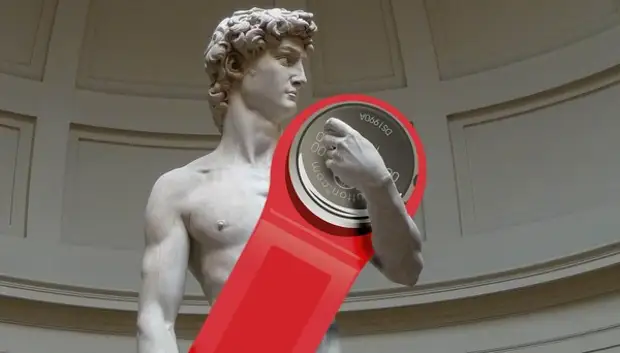
1. Key programming myth
1.1 Confusion: Many people think that when programming keys for the intercom, the master writes something to the key itself, after which this key is able to open this intercom. At the same time, allegedly, with other intercoms, this key can never work.
1.2 In fact, in the overwhelming majority of intercom systems, no changes are made to the key. The record is made in the memory of the intercom, and specifically - the unique key code is written to it in the manufacture of it. Of course, this code can be prescribed into an infinite multitude of compatible intercoms compatible with this key, and they will all take it as native.
1.3 Exception: Mifare format keys. In addition to the factory code, the key of this format has a rewritable memory area. In such a programming key, the record is being made - a unique intercom password is introduced into the key memory. When cloning (see below), only the factory code is copied, but not a password. As a result, the clone of such a key will be rejected by the intercom, as "according to the passport" like its own, and the password does not know.
1.4 recorded and rewritable keys. Here I ask not to be confused. There are keys with reinforced concrete code in the factory code, and there are keyproof keys, so-called. "Dawks". They do not contain code in themselves and are designed specifically in order to copy the code of any existing key or write an arbitrary code scored on the keyboard.
But the recording of the dumplings is not made by a master serving your intercom, but "Uncle Ashot" in a key workshop using a special device - duplicator. Single blanks support multiple rewriting code. In any case, only one code can be recorded at a time in this workpiece. You can not drain the codes of two different keys to one blank!
After copying the code in the memory of the workpiece, the clone inherits the right of the source key with some limitations:
▶ Some intercoms are equipped with an anticlon filter, thereby reject the duplicates of the keys.
▶ You cannot completely copy the contents of the Mifare key, which was mentioned above.
2. Legend of the notorious "all-terrain
Create a universal key on certain limits is quite possible. But I will say right away, there is no absolutely universal key and can not be, if only because there is no single key format for all intercoms. Promotions to obtain universal keys:
2.1 Honest way - to register the key to all available intercoms of the neighborhood. For example, a communal service makes many copies of one key, distributes them to companies serving intercoms on the area, and obliges to prescribe this key to all serviced and newly installed intercoms in the district. Each time one of these copies is added to a new intercom, all the counterparts of this key "in absentia" gain access to a new entrance. Copies of such a key are distributed by postmen, public utilities and, of course, the police. Imagine? The keys are distributed, and the update continues! However, in this moth barrel there is a pair of wondering:
▶ The notorious variety of formats. Some intercoms work with contact "tablets" of different varieties, others - with contactless blocks.
▶ Various intercom filters and tricks that do not allow to use duplicates.
2.2 Emulator - a device with a display and memory in which key codes are copied with access to different intercoms. Each code is supplied with a comment (type "3rd builders Street, house 25, entrance 1"), which allows you to find the desired code in memory before applying the emulator to the reader. The main advantage of the emulator is capable of imitating the keys of various formats: both Dallas, and Cyfral, and Metakom, and hell in a step.
2.3 Preparation with a special code. Smart heads found that unoccupied intercom memory cells are filled with numbers 255 (FF in a 16-riche system). These numbers are actually a marker of a free memory cell. As a result, with the help of a duplicator, the keys with the code of the "free cell" were created, and the intercoms willingly opened the doors with such keys, the benefit in any intercom at least one free cell. In new intercoms, this loophon was eliminated, but until 2005, the trick worked everywhere.
3. The myth of demagnetic keys
3.1 Moorhood: The keys of the DomoFon are mistakenly called "magnitics" or "magnetic keys". Accordingly, the people fear that under the action of a magnet, the key can be uncharged, as a result of which the door will stop opening.
3.2 In fact, "tablets", and contactless key rings are completely indifferent to the magnets. The author tried to unagine the keys with a powerful neodymium magnet, but they don't even stick to him! After the magnet is impact, the keys have preserved performance.
3.3 Where to doubt then? At one time, the magnetic keys were used in access control systems. And now the entrance to some banks is ensured by a bank magnetic map. By the way, you can define a bank magnetic card.
+ Keys often fail. "Tablets", for example, die from static discharges. If we have a contactless card in the back pocket, then regular squats will bring the card to a cracked state and it will stop working. Most often, it is precisely this ailment and is called "demagnetization." When the key came out of the order bring the technique or administrator, he does not "enchain" it, but gives a new one.
+ The contact keys of the type "Tablet" from frequent use are settled in the holder and stop contacting the reader. Here, too, there can also be a speech about demagnetization. Just sell a tablet in the opposite direction ↓
A source
